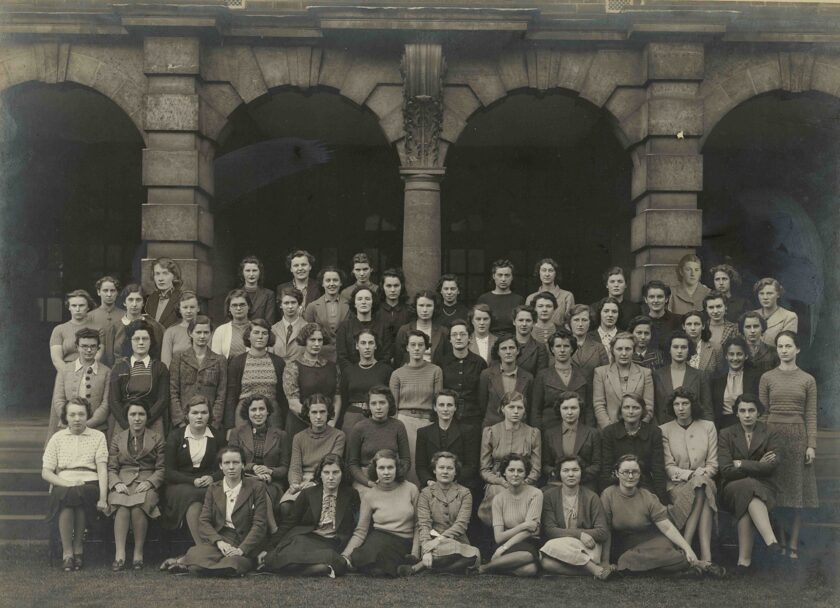Philippa Foot has had a lot of airtime this week. Renewed enthusiasm for the work of this significant Somervillian – who both studied and taught here – has manifested in her featuring on both Radio Four’s In Our Time, and The Iris Murdoch Podcast.
In today’s In Our Time, the legendary Melvyn Bragg discusses Foot’s life and theories with academics including Anil Gomes, Philosophy Fellow at Trinity College, Oxford, whilst Somerville’s own Fellow Emeritus in Philosophy, Lesley Brown, shares her insight on The Iris Murdoch Podcast’s episode on Foot.
Philippa Foot (1920 – 2010) was one of the most important moral philosophers of the twentieth century, whose work challenged many prevailing views of the time, and helped revive the study of virtue. On The Iris Murdoch Podcast, Lesley Brown recounts how Foot came from an aristocratic family, where girls didn’t go to university, but that after arriving in Somerville in 1939 to read PPE, she held socialist ideals for the rest of her life. Somerville was incredibly important to Foot, as she spent over twenty years here as a Philosophy Fellow, throwing herself into many College roles ‘with conscientiousness and warmth’. Although she later moved to America to teach, Foot returned to Oxford every year, taking part in many philosophical discussions, both in an official capacity, and with her friends. Before her death, Foot made Somerville the recipient of her future royalties, and Lesley Brown, who had been taught by Foot as an undergraduate, became her literary executor.

Philippa Foot’s Matriculation at Somerville, 1939. Foot is second row from the front, second from the right.
Brown reflects that Foot couldn’t have imagined the enormous interest that her work has inspired, partly as a result of two recent books on the so-called Quartet: Metaphysical Animals by Clare Mac Cumhaill and Rachael Wiseman, and The Women Are Up to Something by Benjamin J.B. Lipscomb. Both look at how Philippa Foot, alongside Elizabeth Anscombe, Mary Midgley, and Iris Murdoch, shaped the intellectual history of the 20th century. According to Brown, Foot would not have much liked being thought of as being part of a shared project like this – although the four women were friends, there is an immense diversity to their work and views. In large part, what connected them was Somerville, as all but Anscombe were undergraduates here, and Foot and Anscombe were Philosophy Fellows during the fifties and sixties.
It is good news, then, that Foot is being celebrated in her own right by these two programmes. Anil Gomes spoke to us before the broadcast of the In Our Time episode, saying,
Foot’s wonderful, penetrating philosophy was developed in part through conversations with those around her at Somerville, most notably with Elizabeth Anscombe but also with a generation of students. She always claimed that she was a slow thinker, with a good nose for philosophical problems rather than cleverness. Her work can serve as a reminder for why slow, careful thinking is to be supported in Oxford.
Both episodes dive into Foot’s lasting preoccupation with the nature of morality. Brown recalls how Foot told a story about watching news reels of concentration camp inmates, and how these horrors made her think that the prevailing trend in moral philosophy at the time must be wrong. Morality could not be entirely subjective, an expression of attitude or emotion – Foot defends the objectivity of morality. Foot’s vital work, Natural Goodness, published when she was eighty, was the culmination of her life’s work. It argues that human beings are essentially natural organisms, with their own defects: moral vice is a defect akin to a plant not having strong roots, Brown summarises. We need virtue like we need healthy lungs. Perhaps now, more than ever, we should pay attention to Foot’s work.